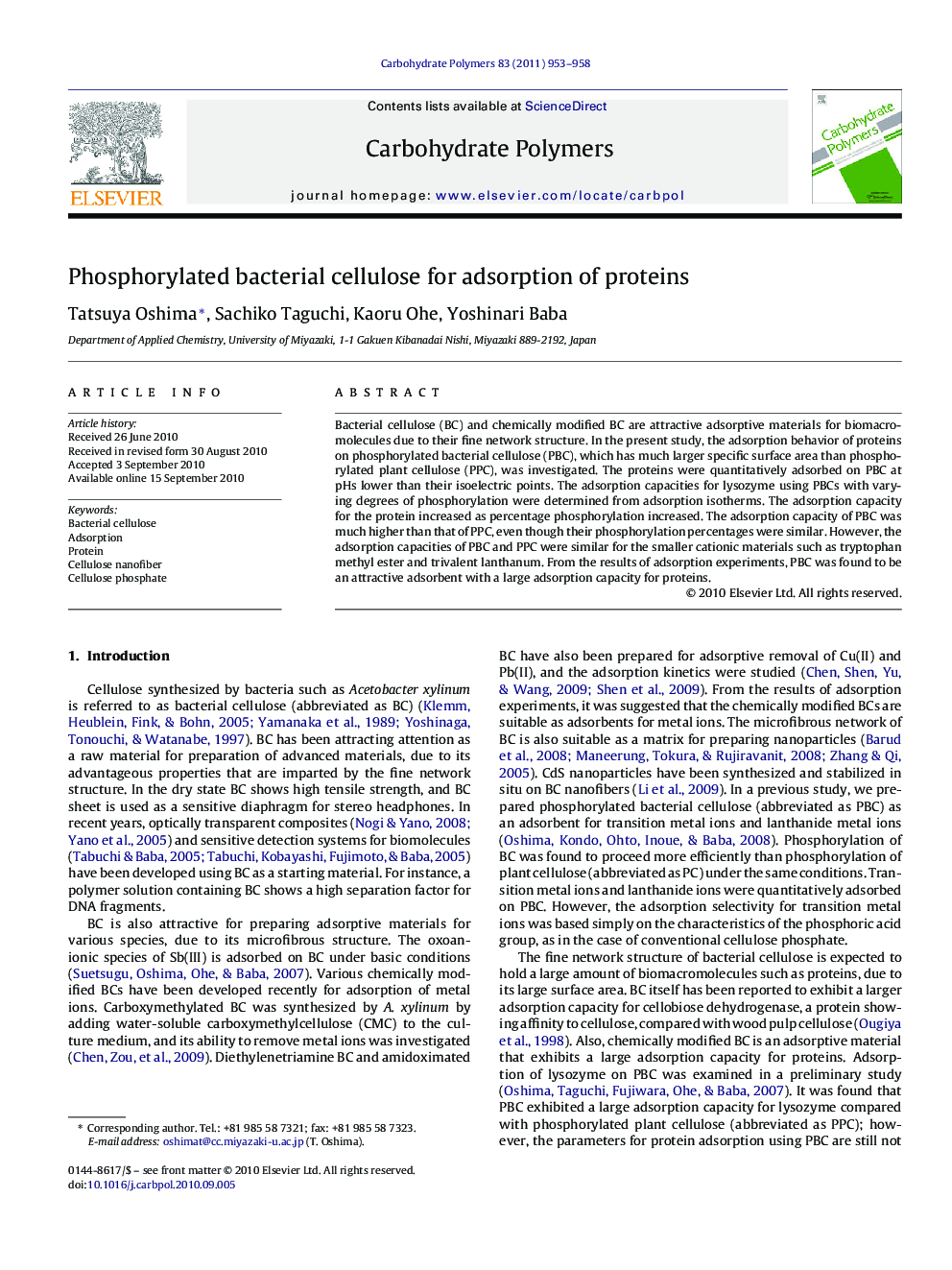| Article ID | Journal | Published Year | Pages | File Type |
|---|---|---|---|---|
| 1387112 | Carbohydrate Polymers | 2011 | 6 Pages |
Bacterial cellulose (BC) and chemically modified BC are attractive adsorptive materials for biomacromolecules due to their fine network structure. In the present study, the adsorption behavior of proteins on phosphorylated bacterial cellulose (PBC), which has much larger specific surface area than phosphorylated plant cellulose (PPC), was investigated. The proteins were quantitatively adsorbed on PBC at pHs lower than their isoelectric points. The adsorption capacities for lysozyme using PBCs with varying degrees of phosphorylation were determined from adsorption isotherms. The adsorption capacity for the protein increased as percentage phosphorylation increased. The adsorption capacity of PBC was much higher than that of PPC, even though their phosphorylation percentages were similar. However, the adsorption capacities of PBC and PPC were similar for the smaller cationic materials such as tryptophan methyl ester and trivalent lanthanum. From the results of adsorption experiments, PBC was found to be an attractive adsorbent with a large adsorption capacity for proteins.
